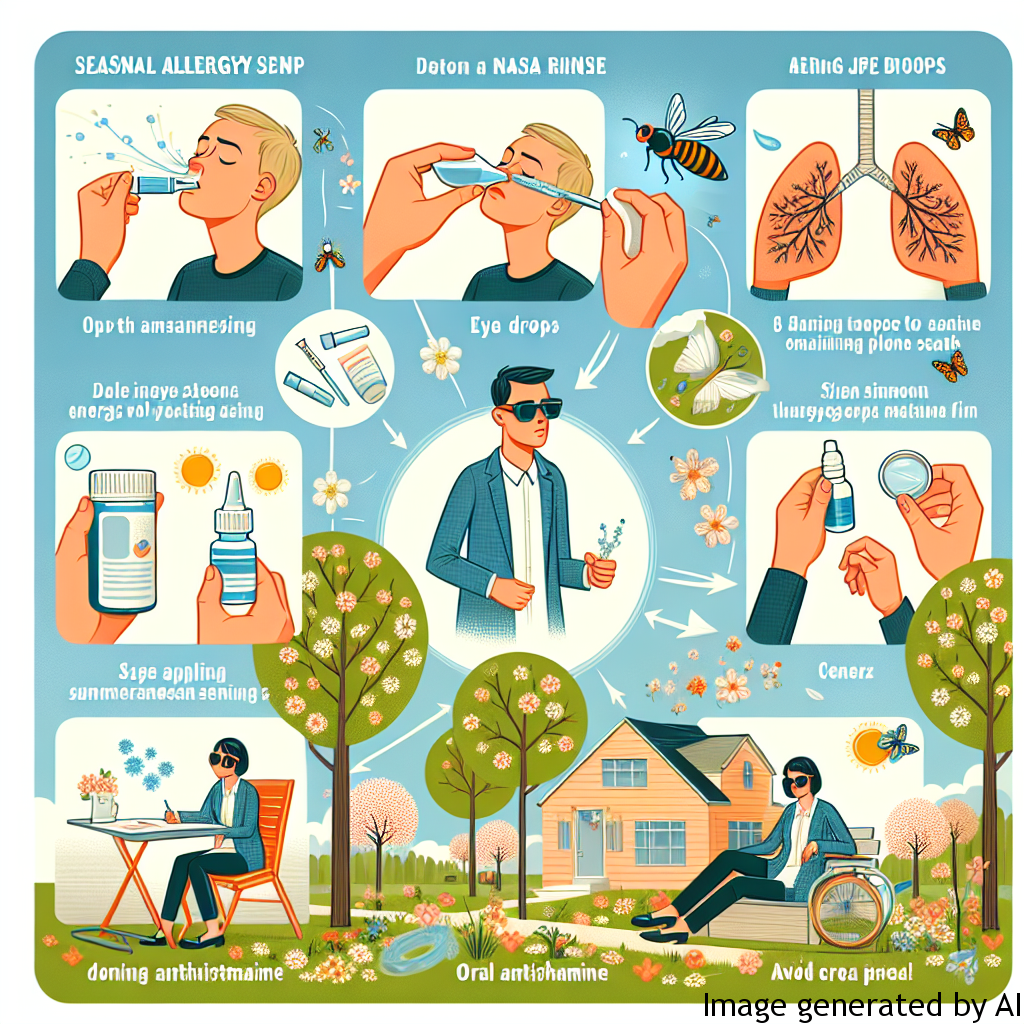Introduction
Seasonal allergies are a common source of discomfort and inconvenience for many people. They are triggered by various allergens that are specific to different times of the year. Symptoms can range from mild, such as sneezing and itching, to severe, including difficulty breathing. Fortunately, there are ways to manage these symptoms to reduce discomfort and improve quality of life during allergy season.
Understanding Seasonal Allergies
What are Seasonal Allergies?
Seasonal allergies, also known as hay fever or allergic rhinitis, occur when your immune system mistakes harmless substances for dangerous invaders. Common triggers include pollen from trees, grass, and weeds, mold spores, dust mites, and pet dander. These allergies can cause several symptoms, such as sneezing, itchy or watery eyes, congestion, and fatigue.
When do they occur?
These allergies typically occur in spring, summer, and early fall. The exact time and severity of the allergies depend on what you are allergic to and where you live.
Managing Specific Symptoms
Medications
Medications can be used to alleviate the symptoms of seasonal allergies. Antihistamines prevent histamine (a substance your body produces during an allergic reaction) from attaching to your cells and causing symptoms. Decongestants can help with a stuffy nose, while corticosteroids can help with inflammation.
Lifestyle Changes
Certain lifestyle changes can also be beneficial. Limiting outdoor activities when pollen counts are high, keeping windows closed, wearing sunglasses outdoors to protect your eyes, and showering after being outside can reduce your exposure to allergens.
Tackling Seasonal Allergies at a Deeper Level
Allergy Immunotherapy
Immunotherapy, either through allergy shots or oral tablets or drops, can be effective for certain types of allergies. This involves gradually increasing doses of the allergen until your body is less reactive to it.
Nasal Irrigation
Nasal irrigation, such as with a neti pot, can help clear nasal congestion and remove allergens from the nose.
Conclusion
While seasonal allergies can be uncomfortable and frustrating, they don’t have to ruin your enjoyment of the changing seasons. By understanding your triggers, being proactive about managing your exposure to them, and knowing how to manage your symptoms, you can navigate allergy season with less discomfort and more enjoyment of life.

